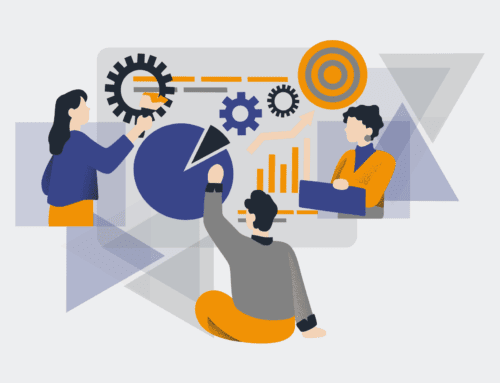Personalizing Employee Experience: AI’s Pivotal Role in Engagement and Retention
In today’s dynamic business environment, the battle for top talent isn’t just about competitive salaries or attractive benefits. It’s fundamentally about experience—the daily, weekly, and yearly journey an employee takes within an organization. For business leaders, HR professionals, and COOs, optimizing this employee experience (EX) is no longer a luxury but a strategic imperative directly impacting productivity, innovation, and ultimately, profitability. The challenge, however, lies in scaling personalization. How can a large organization cater to the unique needs, aspirations, and communication styles of hundreds, if not thousands, of individuals without overwhelming its HR and management teams?
This is where Artificial Intelligence moves from being a buzzword to a transformative operational asset. At 4Spot Consulting, we’ve seen firsthand how intelligently deployed AI can revolutionize how companies engage with their most valuable resource: their people. It’s not about replacing human connection; it’s about amplifying it, making it more timely, relevant, and impactful.
The Evolving Landscape of Employee Experience
For decades, employee experience initiatives often relied on broad-stroke programs: annual surveys, one-size-fits-all training, and standardized communication. While well-intentioned, these approaches frequently fall short because they fail to acknowledge the fundamental truth that every employee is an individual. What motivates a seasoned leader might differ significantly from what inspires an entry-level professional. What constitutes effective feedback for one person might be entirely ineffective for another.
This lack of personalization leads to disengagement, a sense of being just “another number,” and ultimately, higher attrition rates. The modern workforce expects more; they expect their employer to understand them, support their growth, and offer a work environment that genuinely resonates with their personal and professional goals. The sheer volume and complexity of data required to deliver this level of individualization manually render it practically impossible for most organizations.
AI as the Catalyst for Hyper-Personalization
AI, particularly through its capabilities in data analysis, pattern recognition, and predictive modeling, offers a scalable solution to the personalization dilemma. Imagine a system that can analyze an employee’s career aspirations, learning preferences, past performance data, internal network connections, and even sentiment from communication channels (anonymously and ethically, of course) to create a truly bespoke experience.
AI-powered platforms can identify skill gaps and recommend personalized learning paths, suggest mentorship opportunities based on compatibility, or even predict potential burnout risk based on workload and engagement metrics. This proactive, data-driven approach allows organizations to move from reactive problem-solving to proactive support and development.
Driving Engagement Through Tailored Journeys
Engagement is not a static state; it’s a continuous journey. AI can transform this journey by ensuring every touchpoint is meaningful. For instance, onboarding can become a personalized sequence of information, tasks, and introductions tailored to the new hire’s role, department, and prior experience. Performance management can shift from generic annual reviews to continuous, AI-assisted feedback loops that provide managers with insights into individual team member needs and suggest coaching strategies.
Beyond formal processes, AI can help tailor communication, ensuring employees receive information relevant to them, reducing information overload and increasing the likelihood of messages being heard and acted upon. It can recommend internal social groups, wellness programs, or volunteer opportunities aligned with an individual’s expressed interests, fostering a stronger sense of belonging and community.
Boosting Retention with Predictive Insights
The cost of employee turnover is staggering, encompassing recruitment, onboarding, training, and lost productivity. AI’s ability to analyze vast datasets can be a powerful tool in predicting attrition. By correlating various factors—such as declining engagement, lack of development opportunities, recent changes in team dynamics, or even external market trends—AI algorithms can flag employees who might be at risk of leaving.
This predictive insight empowers HR and leadership to intervene proactively. Instead of losing a valuable team member and scrambling to replace them, organizations can offer targeted support, career development discussions, or adjusted responsibilities. This proactive approach not only saves significant costs but also reinforces the organization’s commitment to its employees, strengthening loyalty and creating a more stable, experienced workforce.
Operationalizing AI for HR: The 4Spot Consulting Approach
Implementing AI for personalized employee experience isn’t about buying an off-the-shelf software and hoping for the best. It requires a strategic, integrated approach. At 4Spot Consulting, our OpsMesh™ framework ensures that AI and automation solutions are not just technically sound but deeply aligned with your business objectives. Our OpsMap™ diagnostic process meticulously uncovers current inefficiencies in your HR and operations, identifying exactly where AI can deliver the most impactful personalization and efficiency gains.
We specialize in integrating sophisticated AI tools with existing HRIS, CRM, and communication platforms using robust automation solutions like Make.com. This ensures a seamless flow of data, transforming disconnected systems into a cohesive ecosystem that powers personalized experiences. Our goal is to eliminate low-value, repetitive work from your high-value HR professionals, freeing them to focus on strategic initiatives and genuine human connection, amplified by AI’s insights.
Beyond the Hype: Real-World Impact
The real value of AI in personalizing employee experience isn’t just theoretical; it’s measurable. Companies adopting these strategies report significant improvements in engagement scores, reductions in voluntary turnover, and enhanced productivity. Imagine an HR department that can identify and address individual employee needs before they escalate, or a talent development team that can offer precisely the right growth opportunities at the right time. This leads to a more satisfied, productive, and loyal workforce—a significant competitive advantage.
Personalizing employee experience with AI is not about dehumanizing HR; it’s about rehumanizing it by giving HR professionals the tools to truly understand and support each individual within their organization at scale. It’s about leveraging technology to create a workplace where every employee feels valued, understood, and empowered to thrive.
If you would like to read more, we recommend this article: Mastering AI in HR: Your 7-Step Guide to Strategic Transformation






